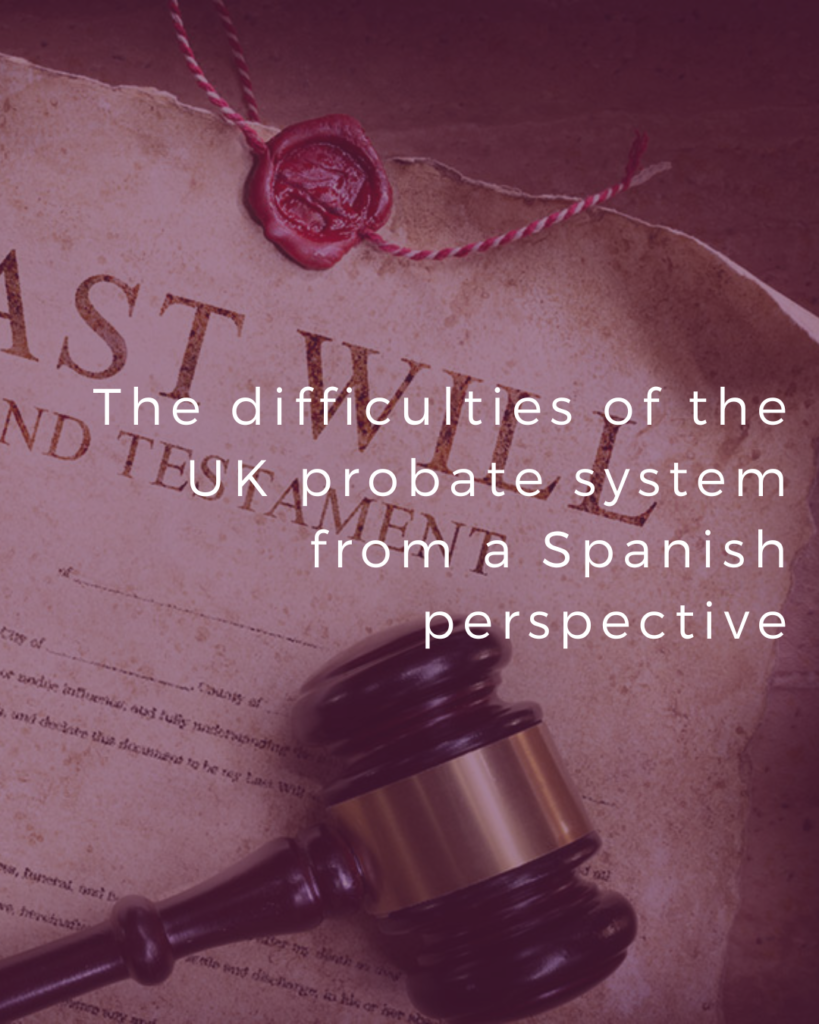Spanish Inheritance Tax Considerations for “Brexpats”. With Brexit underway, U.K. residents who own property in Spain—of which there are many, considering Spain is one of the top overseas destinations where British people own second homes—need to make a concerted effort to understand the changing landscape affecting how their overseas assets will be taxed in accordance with their will.
Succession Law In Spain
Succession law changed in Spain on August 17, 2015, when the new EU Succession Regulation No. 650/2012 (also known as “Brussels IV”) came into effect. This new Regulation aimed to improve and simplify international inheritance rules and how individuals are taxed on assets they hold in EU member states. Essentially the new Regulation recognizes that a person may change their habitual residence over time, so in cases where it is unclear what their habitual residence upon death is, the Regulation provides certainty in the ability for the person to choose the national law applicable to his or her will.
It is important to note that a will drafted in Spain needs to be signed by a notary and submitted to the Central Registry of Wills. Therefore, when drafting a will in Spain, it is important to ensure the drafting is clear to avoid what is known as the “forced heirship rule,” because there is no testamentary freedom in Spain.
In this respect it is important to make sure that the individual’s lawyer carefully drafts the appropriate clause in the will to choose English law as the law applicable to the succession, as there is no other way to avoid this “rule.” If the “forced heirship rule” applies, the estate is divided in three parts and only one is of free disposition for the testator. In cases where there is no will in place, Spanish intestacy rules will apply, meaning that the children will inherit all the assets.
Therefore, the law that the testator chooses to apply carries significant weight, although it is important to bear in mind that this decision does not apply to the court’s jurisdiction. While a court pertaining to a member state whose chosen law has been decided by the deceased may have jurisdiction in some eventualities (and in certain cases, it may have exclusive jurisdiction on all succession-related matters), if a consensus is agreed by the parties in dispute over a testamentary issue, it might be that the same court declines its jurisdiction in accordance with the applicable law to the nationality of the deceased or where the assets are located. In the U.K., the only body that can issue grants of representation is the High Court, so this is particularly important in this country.
The new regulations—which affect all aspects of inheritance and wills—have largely been overlooked by U.K. nationals who own property in Spain because the U.K. opted out of the legislation. The importance of these new rules cannot be underestimated, as any wills granted before the 2015 date must be updated to comply with their provisions for any assets located in Spain.
The fact of having a single English will or two separate wills (one in England and one in Spain) must be carefully reconsidered when going through any state and tax planning exercise. Failing to review or redraft a will could lead to adverse implications on how the assets are being distributed or even how the individual’s assets will be taxed, which could become problematic.
Practical Tax Implications
With that in mind, what are the practical tax implications that the new Regulation and Brexit have on cross-border estate administration?
One of the first things to bear in mind where one’s tax position is concerned is that inheritance tax (IHT) is not included in the double tax treaty between Spain and the U.K. This means that any U.K. IHT planning must be considered alongside the Spanish inheritance and gift tax (ISD)—which is an acquisition tax, as opposed to a transfer tax as in the U.K.—when drafting a will. The inheritors (or receivers of a gift) have a duty to pay the ISD if they have acquired a property located in Spain by inheritance or as a gift.
For the purposes of tax planning, the position of the recipient of the assets must be considered (rather than the position of the transferor’s estate). This is an important consideration if we look at the U.K., where many families may use testamentary trusts or similar arrangements.
As mentioned above, those who have a separate Spanish will, under the new Regulation can choose to apply English law (though this must be considered in conjunction with the U.K.’s applicable probate rules). This is particularly important when it comes to taxes. The British individual domiciled and resident will be subject to tax in the U.K. on their property in Spain (as this forms part of their worldwide assets).
However, we must take into account that the British resident in Spain will pay taxes on his or her worldwide assets in both countries, although the U.K. may apply a unilateral tax relief. In any case, irrespective of whether the deceased was resident in Spain or elsewhere, the recipients will find that they are liable to pay taxes on all assets and property they hold in Spain.
Please note that it is not the estate which will be taxed, but the recipients of the estate. This is not a minor difference between the U.K. and Spain, and it is important to ensure that it is duly considered. It must be highlighted that even if the deceased is in the U.K and there are no assets in Spain, the successors living in Spain will be taxed in accordance with the rules of the region of residence for those assets inherited outside Spain.
With so many U.K. nationals living in Spain permanently (estimated around 400,000), if the deceased is a resident of Spain, the successors are taxed according to the regional regulations corresponding to the residence of the deceased. If the deceased is not resident in Spain, the different assets will be valued jointly and the regional rules where the majority of the asset value is located will be applicable.
Under the new Regulation, traditional tax-planning schemes also need to be reconsidered—for example, if the individual holds a property via an offshore trust or holding company, or if testamentary trusts are instrumented or charities are involved. Applicable tax-free allowances are very limited for charitable giving.
Similarly, spouses are far from exempt beneficiaries. Spouses and certain other families might be subject to specific tax liabilities, though the rules will depend on the Spanish territory in which the assets or recipients of the assets are located. Lifetime gifts are also subject to tax, making cross tax planning quite challenging.
The complications of the tax system in Spain are due to the fact that there are 17 regions with their own tax regimes for IHT (Comunidades Autónomas). There are 100% tax exemptions in Cantabria, 99.9% in the Canary Islands and 99% in Extremadura, Madrid or Murcia. In Andalucía there are generous allowances and similarly in Catalonia, Valencia and the Balearic Islands, which apply an allowance with certain limits to the tax payable. The computations for each region must be thoroughly reviewed and analyzed.
Following death, the executor has six months to communicate with the Spanish Tax Agency (Agencia Estatal de Administración Tributaria (AEAT)), upon which nonresidents will be required to provide a Spanish tax reference number (Numero de Identificación de Extranjero (NIE)). They must appoint a Spanish tax representative (Representante Fiscal) to ensure the process is handled efficiently. It is worth noting that advice should be sought from a tax adviser and lawyer qualified in both jurisdictions, given the complexity of the process.
Leon Fernando Del Canto is an international tax barrister practicing from Normanton Chambers in London. He is a member of the Honourable Society of Lincoln’s Inn, The Worshipful Company of Tax Advisers, the Association of Taxation Technicians and the Madrid Bar.
The author may be contacted at: fernando@delcantochambers.com
This article has been originally published in Bloomberg Tax
Del Canto Chambers is a leading London Chambers specialising in tax, international tax and legal affairs, property law, intellectual property and legal advocacy.
To make a no-obligation enquiry, please either call us now on:
+44 2070 430648 or Make An Online Enquiry.
We will come back to you within 24 hours, and we will be delighted to help you.







